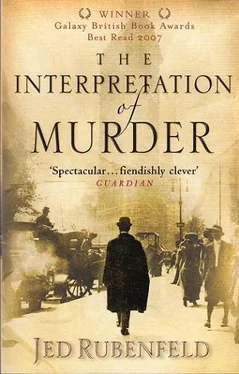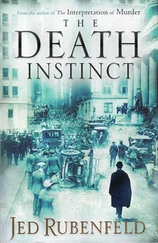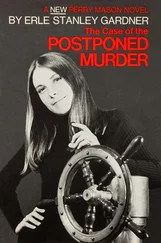Jed Rubenfeld - The Interpretation of Murder
Здесь есть возможность читать онлайн «Jed Rubenfeld - The Interpretation of Murder» весь текст электронной книги совершенно бесплатно (целиком полную версию без сокращений). В некоторых случаях можно слушать аудио, скачать через торрент в формате fb2 и присутствует краткое содержание. Жанр: Исторические приключения, на английском языке. Описание произведения, (предисловие) а так же отзывы посетителей доступны на портале библиотеки ЛибКат.
- Название:The Interpretation of Murder
- Автор:
- Жанр:
- Год:неизвестен
- ISBN:нет данных
- Рейтинг книги:5 / 5. Голосов: 1
-
Избранное:Добавить в избранное
- Отзывы:
-
Ваша оценка:
- 100
- 1
- 2
- 3
- 4
- 5
The Interpretation of Murder: краткое содержание, описание и аннотация
Предлагаем к чтению аннотацию, описание, краткое содержание или предисловие (зависит от того, что написал сам автор книги «The Interpretation of Murder»). Если вы не нашли необходимую информацию о книге — напишите в комментариях, мы постараемся отыскать её.
The Interpretation of Murder — читать онлайн бесплатно полную книгу (весь текст) целиком
Ниже представлен текст книги, разбитый по страницам. Система сохранения места последней прочитанной страницы, позволяет с удобством читать онлайн бесплатно книгу «The Interpretation of Murder», без необходимости каждый раз заново искать на чём Вы остановились. Поставьте закладку, и сможете в любой момент перейти на страницу, на которой закончили чтение.
Интервал:
Закладка:
'Wait, Mr Hugel, I didn't even tell you. Remember the black-haired man? I found out where he went. First he goes to the Hotel Manhattan — how about that? — and then he goes to a cathouse on Fortieth Street. So I go to this cathouse myself, and the lady inside tips me off to Harry Thaw, who — '
'What are you talking about, Littlemore?'
'Harry Thaw, the guy who murdered Stanford White.'
'I know who Harry Thaw is,' said the coroner, with considerable self-restraint.
'You're not going to believe this, Mr Hugel, but if the Chinaman's not the killer, I think Harry Thaw might be our guy.'
'Harry Thaw.'
'He got off, remember? Beat the rap,' said Littlemore. 'Well, at his trial, there was this affidavit from his wife, and — '
'Are you going to bring Harry Houdini into it as well?'
'Houdini? Houdini s the escape artist, Mr Hugel.'
'I know who Houdini is,' said the coroner, very quietly.
'Why would I bring him into it?' asked Littlemore.
'Because Harry Thaw is in a locked cell, Detective. He did not beat the rap. He is incarcerated at the Matteawan State Hospital for the Criminally Insane.'
'He is? I thought he got out. But then — then he can't be the guy.'
'No.'
'I don't get it. This lady at the house where the blackhaired man went — '
'Forget the black-haired man!' the coroner exploded. 'No one listens to me in any event. I write a report; no one reads it. I decide on an arrest; my decision is ignored. I am closing the case.'
'But the threads,' Littlemore answered. 'The hairs. The injuries. You said so, Mr Hugel, you said so yourself.'
'What did I say?'
'You said the same guy who killed Miss Riverford attacked Nora Acton. You said there was proof. That means Miss Acton didn't cook it all up. There was an assault, Mr Hugel. There is a case. Somebody attacked Miss Acton on Monday.'
'What I said, Detective, was that the physical evidence was consistent with the assailant being the same person in both cases, not that it was proof. Read my report.'
'You don't think Miss Acton — you don't think she whipped herself, do you?'
The coroner stared straight ahead with his morose, sleepless eyes. 'Disgusting,' he said.
'But how about the tiepin? You said there was a tiepin with Banwell's initials on it. It's exactly what you were looking for, Mr Hugel.'
'Littlemore, don't you have ears? You heard Riviere. The impression on Elizabeth Riverford's neck was not GB. I made a mistake,' Hugel muttered angrily. 'I made one mistake after another.'
'So what's it doing there — the pin, in the tree?'
'How should I know?' yelled Hugel. 'Why don't you ask her? We have nothing. Nothing. Only that infernal girl. No jury in the country would believe her now. She probably put the pin in the tree herself. She is — she is psychopathic. They must put her away.'
Sandor Ferenczi, smiling and nodding encouragingly, backed himself toward the door of Jung's hotel room like a courtier withdrawing from the royal presence. He had, with some trepidation, conveyed Freud's request to see Jung alone.
'Say that I will call on him in ten minutes,' Jung had answered. 'With pleasure.'
Ferenczi had expected an implacable Swiss in high umbrage, not the serene Jung who had greeted him. Ferenczi would have to inform Freud that Jung's change of temperament struck him as peculiar. More than that, he would have to tell Freud what Jung was doing.
Hundreds of pebbles and small stones, together with an armful of broken twigs and torn-up grass, were strewn about the floor of Jung's room. Ferenczi could not imagine where it had all come from: possibly from empty lots undergoing construction, which seemed ubiquitous in New York. Jung himself was sitting cross-legged on the floor, playing with these materials. He had pushed all the hotel furniture — armchairs, lamps, coffee table — out of the way, clearing a large empty space on the floor. In this space, he had built a village of stones, with dozens of tiny houses surrounding a castle. Each house had its own little plot of tufted grass behind it: perhaps a vegetable garden or backyard. In the center of the castle, Jung was trying to implant a forked twig with long blades of grass tied to it, but he could not make this standard stay upright. That was why, Ferenczi guessed, Jung needed another ten minutes before he could come. Assuming, Ferenczi added to himself, that the delay had nothing to do with the service revolver lying on Jung's bedside table.
It is surely impossible for a house to wear an expression, but I would have sworn otherwise as I neared the Actons' limestone townhouse on Gramercy Park late Thursday morning. Before anyone answered the door, I knew something was amiss within.
Mrs Biggs let me in. The woman was literally wringing her hands. In an anguished whisper, she told me it was all her fault. She was just tidying up, she said. She would never have shown it to anyone if she had known.
Gradually Mrs Biggs calmed down, and I learned from her all the dreadful events of the previous night, including the discovery of the telltale cigarette. At least, Mrs Biggs added with relief, Mrs Banwell was now upstairs. It was plain that the old servant regarded Clara Banwell as capable of taking matters in hand more competently than the girl's own mother or father. Mrs Biggs left me in the sitting room. Fifteen minutes later, Clara Banwell entered.
Mrs Banwell was dressed to leave. She wore a simple hat with a diaphanous veil and carried a closed parasol that must have been quite expensive, judging by its iridescent handle. 'Forgive me, Dr Younger,' she said. 'I don't want to delay your seeing Nora. But could I have a word with you before I go?'
As she removed her hat and veil, I could not help noticing the length and thickness of her eyelashes, behind which sparkled her knowing eyes. She was not one of Mrs Wharton's dryads 'subdued to the conventions of the drawing-room.' Rather, the conventions lit her up. It was as if all our fashions had been chosen to show off her body, her ivory skin, her green eyes. I could make nothing of her expression; she managed to look both proud and vulnerable.
'Certainly, Mrs Banwell.'
'I know now what Nora has told you,' she said. 'About me. I didn't know last night.'
'I'm sorry,' I replied. 'It is the unenviable hazard of being a doctor.'
'Do you assume your patients tell the truth?'
I said nothing.
'Well, in this case it is true,' she said. 'Nora saw me with her father, just as she described it to you. But since you know that much, I want you to know the rest. I did not act without my husband's knowledge.'
'I assure you, Mrs Banwell — '
'Please don't. You think I am trying to justify myself.' She picked up a photograph from the mantel: it was of Nora at thirteen or fourteen. 'I am far past self-justification, Doctor. What I wish to tell you is for Nora's sake, not my own. I remember when they moved back into this house. George rebuilt it for them. She was shockingly attractive, even then. And only fourteen. One felt the goddesses had for once put aside their differences and made her together as a present for Zeus. I am childless, Doctor.'
'I see.'
'Do you? I am childless because my husband will not allow me to bear. He says it would spoil my figure. We have never had — ordinary — sexual congress, my husband and I. Not once. He will not allow it.'
'Perhaps he is impotent.'
'George?' She looked amused at the thought.
'It is hard to believe a man would voluntarily restrain himself under the circumstances.'
'I believe you are complimenting me, Doctor. Well, George does not restrain himself. He causes me to gratify him in — a different fashion. For ordinary congress, he has recourse to other women. My husband wants many of the young women he meets, and he gets. them. He wanted Nora. As it happened, Nora's father wanted me. George saw a way, therefore, to obtain what he wanted. He obliged me to seduce Harcourt Acton. Of course I was not permitted to do with Harcourt what was forbidden with my own husband. Hence what Nora saw.'
Читать дальшеИнтервал:
Закладка:
Похожие книги на «The Interpretation of Murder»
Представляем Вашему вниманию похожие книги на «The Interpretation of Murder» списком для выбора. Мы отобрали схожую по названию и смыслу литературу в надежде предоставить читателям больше вариантов отыскать новые, интересные, ещё непрочитанные произведения.
Обсуждение, отзывы о книге «The Interpretation of Murder» и просто собственные мнения читателей. Оставьте ваши комментарии, напишите, что Вы думаете о произведении, его смысле или главных героях. Укажите что конкретно понравилось, а что нет, и почему Вы так считаете.












